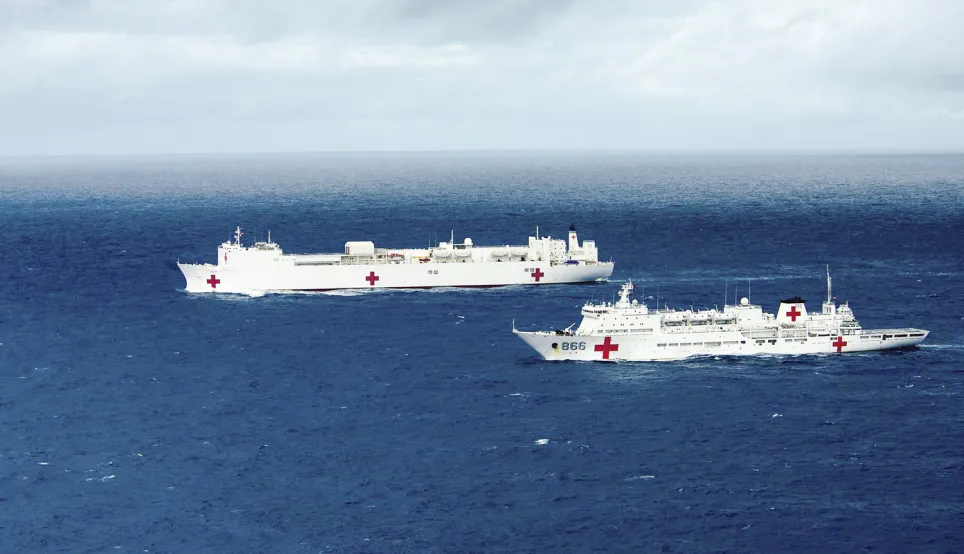The Geneva Conventions of 1949 marked one of the greatest humanitarian legal achievements of the 20th century, with the Second Geneva Convention regulating for the first time the protection of wounded, sick and shipwrecked members of armed forces at sea.
In the years since, the world has been fortunate not to see many conflicts at sea, but we can't be complacent. The rules of war at sea can help save lives and should not be abandoned. The development of long-range targeting systems and satellites for search and rescue compel a re-examination of the Convention's provisions, drafted in the wake of the Second World War.
A changing legal landscape - including the adoption of the 1982 UN Convention on the Law of the Sea along with a number of relevant treaties adopted under the auspices of the International Maritime Organization- also necessitates consideration of how the Second Convention must be applied and interpreted in light of other international legal frameworks.
In this breakfast briefing, ICRC Legal Adviser Bruno Demeyere will reveal the findings of the newly updated Commentary on the Second Geneva Convention, which has exposed developments in the interpretation and application of this Convention since its adoption. Mr Demeyere is part of an ICRC team tackling an ambitious project to develop a new set of article-by-article commentaries to the 1949 Geneva Conventions and the 1977 Additional Protocols.
The new Commentary on the Second Convention was submitted to an extensive process of peer review by humanitarian law practitioners and academics from around the world, including naval experts. Peer reviewers Rob McLaughlin and David Letts (co-directors of the ANU's Centre for Military and Security Law) will join Mr Demeyere in discussing why the Second Convention and its Commentary remain essential tools in protecting humanity.
Please register for this event by 26 June via Eventbrite or email can_canberra@icrc.org

